By the time I finished, there was blood everywhere.
I’m going to back up a little bit.
This story starts with a fire in the far rural north of California. It was a big, scary deal and evacuations were quick and sloppy. People grabbed what they good before jumping into their pickups and hightailing it out of the danger zone. But before they left, they unlatched their paddock gates and barn doors to let their animals take their chances in the wilderness.
The devastating aftermath was heartbreaking for most in the area, with tremendous losses of both property and livestock. But there were some animals who survived.
Curly
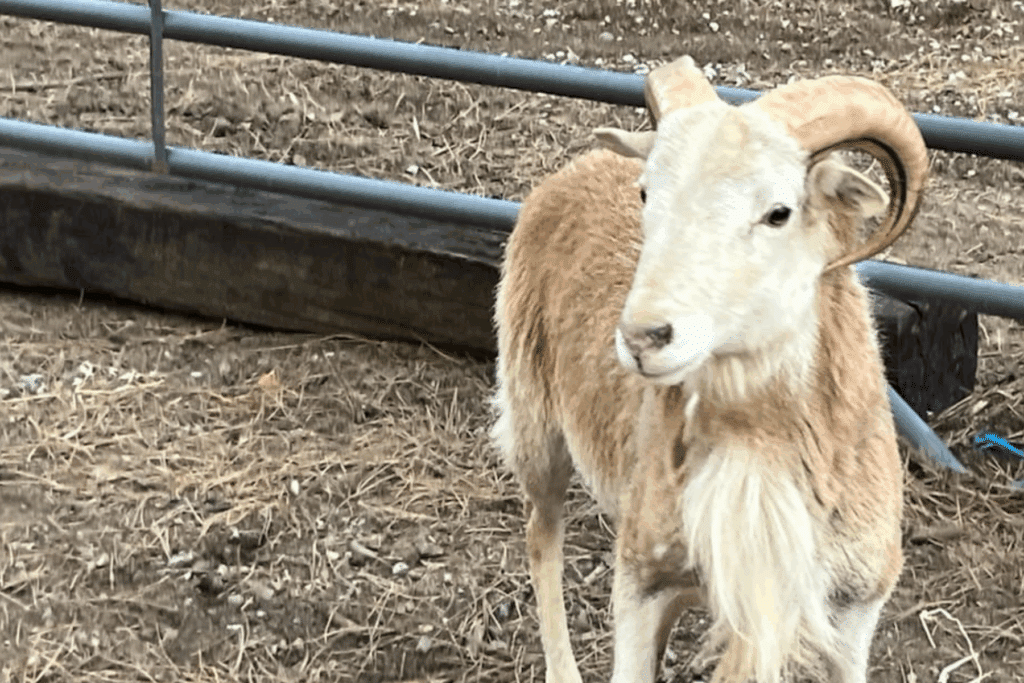
Among them was a young red ram we’ll call Curly.
Not only did Curly survive the fire, he had tasted freedom. I’m not sure how long he was out there in the wilderness, but when he was finally spotted and recaptured he was clearly over farm life. There were attempts to rehome him, but in every case he proved exceptionally resistant to containment and was making life difficult for farmer and happily domesticated stock alike.
There were only two real options.
He could be released back into the wild, a move that is generally considered unethical and environmentally problematic. Still, it was a romantic possibility.
The other option was to eat him.
I got the following text from my neighbor, a veteran of the Iraq war:
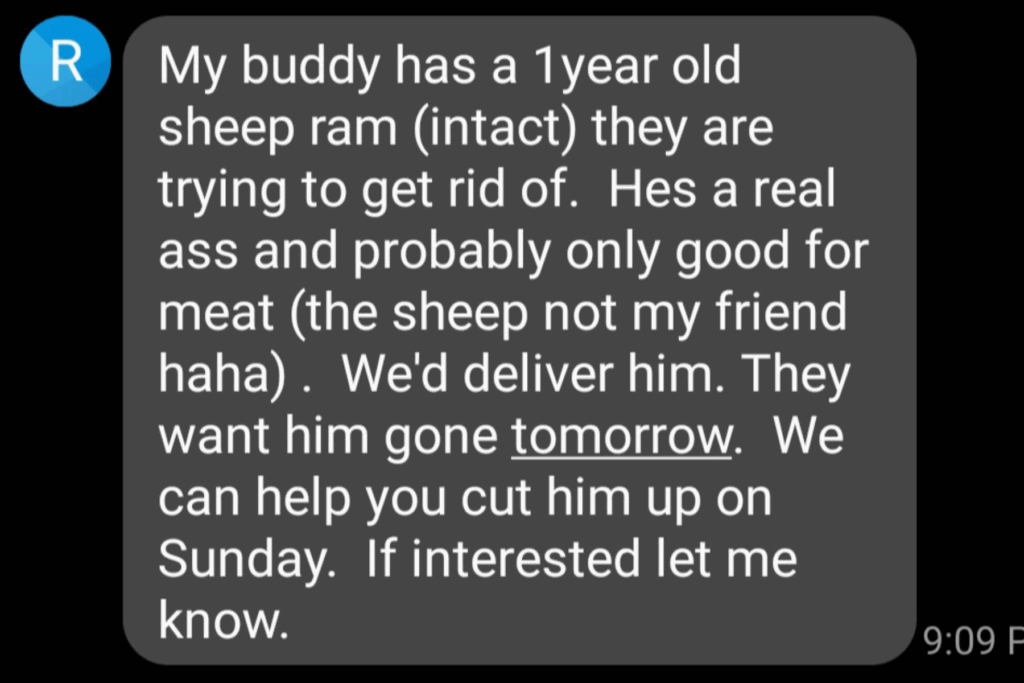
I told him I was interested and we agreed to meet up on Sunday, which so happened to be the first weekend of Ramadan, the Muslim month of fasting. This is an important detail that will come up later.
Another important detail is that most of the men around here dispatch their livestock with a well-placed bullet. My neighbor knows that I am a Muslim and he had previously assisted me in the halal slaughter of my goats, a process that requires a quick hand and a sharp blade to sever the windpipe and major blood vessels of the animal’s throat. Kind and generous man that he is, after that he then invited me to slaughter his chickens so that he could share the meat with me, knowing that my family only consumes halal food.
Compared to shooting an animal, halal slaughtering is a far more intimate process, one that my neighbor describes as “intense.” This is a remarkable statement coming from a veteran of both the Iraqi campaign and the rodeo circuit.
His buddy with the ram, we’ll call him Kirk, was also a veteran and on the appointed day I met him along with his son and his son’s two friends. If you’re keeping count, that’s five men who turned out to observe and assist me with the halal slaughter of this young ram. Kirk’s son approached me and asked, “Is this like how Jewish people only eat kosher?”
I told him that yes, the idea was very similar. In taking the life of the animal, we would have to invoke God’s name and do our best to ensure a quick kill. After that, Kirk and I climbed into the enclosure and he asked me what I needed him to do. I asked him to help me get the ram on its side and try and keep the animal calm.
That’s exactly what he did as I passed the blade over Curly’s throat.
That brings us to the top of this story where we stated, without exaggeration, that there was blood everywhere. The stress of the situation undoubtedly spiked the little ram’s blood pressure and his vital essence pumped out of the wound with great vigor. After a time, Curly’s legs started to kick reflexively as he entered his final death throes.
Kirk stroked the animal’s side until the movements eventually subsided.
Knowledge Transfer
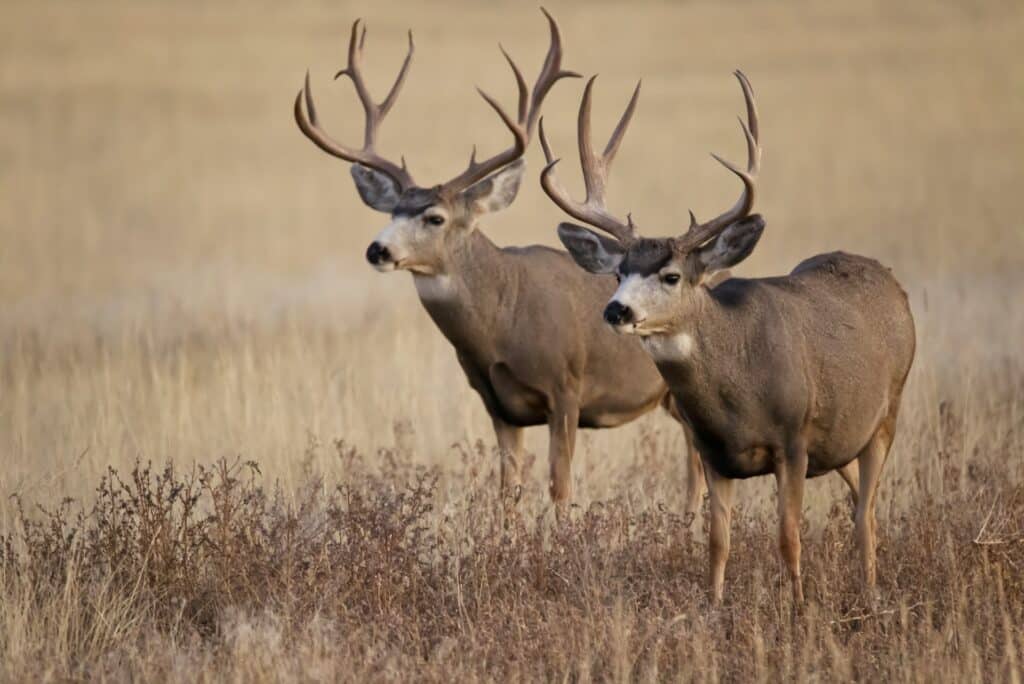
Now that the men had witnessed the Islamic rite of slaughter, I asked that they teach me something in exchange.
Both my neighbor and Kirk are experienced hunters. I have never hunted and I asked if they would teach me how to field dress the ram, to treat it like a downed deer in the woods that they now had to process before packing out. They agreed.
What followed was several hours of conversation and mentorship as they taught me and the three young men in attendance how to skin and dissect the animal, rolling the carcass this way and that to avoid contact with the earth and to minimize any contamination. At some point in all of this, my neighbor took me aside.
He asked if I had noticed Kirk comforting the animal as it died. I acknowledged that I had.
My neighbor went on to explain that such opportunities for expressed compassion were hard to come by for a lot of combat veterans who had, in his experience, challenges with healthy emoting. PTSD, anxiety, substance abuse, and suicide were all too common among his companions. He shared more that I won’t retell here, but the upshot is that he saw our time with Curly as an incredibly valuable experience for Kirk, one that was much more important than I might fully understand.
I thanked my neighbor for the insight and we went back to work on the carcass.
We opened up the abdominal cavity and I began to draw out the organs. I was looking for the liver, having hatched a plot to test the mettle of Kirk’s son and his friends. Once located, I cut it away from the animal, turned to the young men and took a bite out of it. It was sweet and warm and I invited them to follow suit.
They were dumbfounded, but Kirk immediately seized the liver from me and took two bites. The young men goaded each other into eventually complying which went pretty well for all but one guy who started retching like crazy. But despite that minor casualty, there was no question about the bonding we were all experiencing over the death of Curly.
And yes. If you are paying attention, you will remember that this was the month of Ramadan and I was fasting. But in my primal zeal I had forgotten all of that. Al-hamdu lillah, God forgives the forgetful, and He is Most Merciful and Compassionate.
Miracle
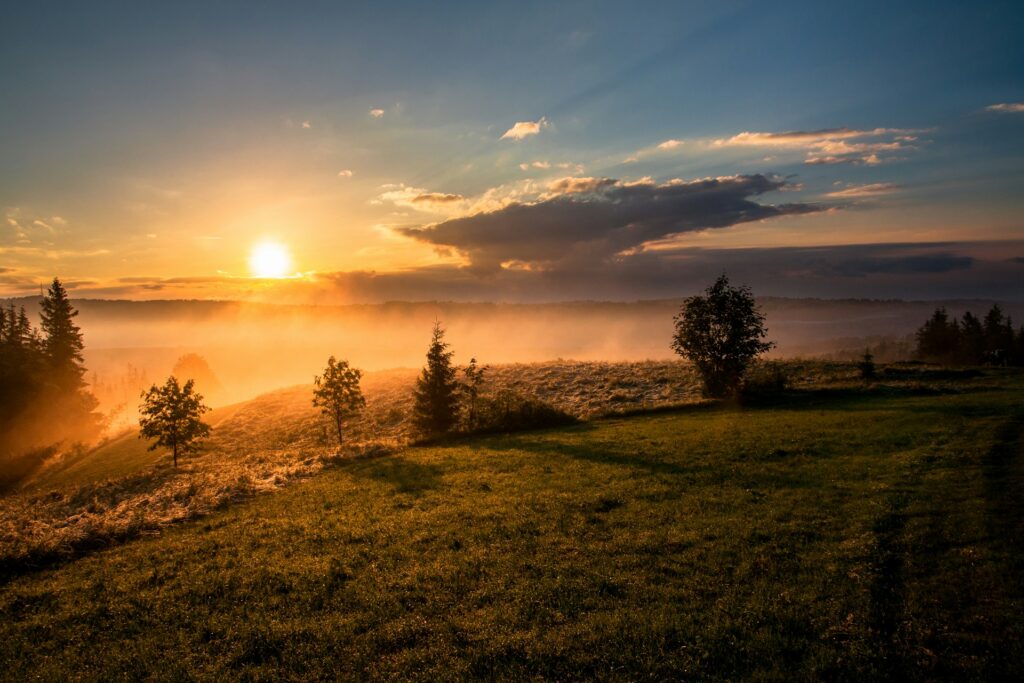
In the end, neither Kirk nor my neighbor wanted any part of Curly. They gifted the entire animal to me and my family.
Years ago, I was living overseas and sitting in on religious lessons where we heard tales of pious people who spent all of their time in sincere and relentless devotion. God, we were told, took care of their basic needs, providing food and shelter through miraculous means, the saints never having to interrupt the observation of their rites to earn a conventional living. I thought the stories were interesting, but as a rule I’m not terribly invested in what I tend to accept as allegorical hyperbole.
The message seems to be that God will provide. Our responsibility is to do right by God and He’ll take care of us. Perhaps we can take comfort in that in those moments when were feeling anxious about making ends meet.
But maybe these aren’t just allegories.
Through no initiative of my own, God has placed an entire sheep in our freezer. This animal that escaped a wilderness inferno only to become a thorn in the side of multiple ranchers and then a redemptive opportunity for one broken-hearted veteran has now been feeding my family and several others for months.
I don’t know how to explain that.
Somewhere in this recollection of events is the awareness that we are at our best when we are living our principles. There is surely an opportunity to reflect here on the nuances of what it means to offer respect to our fellow brothers and sisters in humanity and to all of creation.
And there is the constant reminder that there is so much more to our short lives than we can ever possibly know.
We are once again invited, through the wilderness, to humility.
Leave a comment below for posterity or join us in the D&T Chautaqua Discord to discuss this post with other adventurous spirits from around the world.
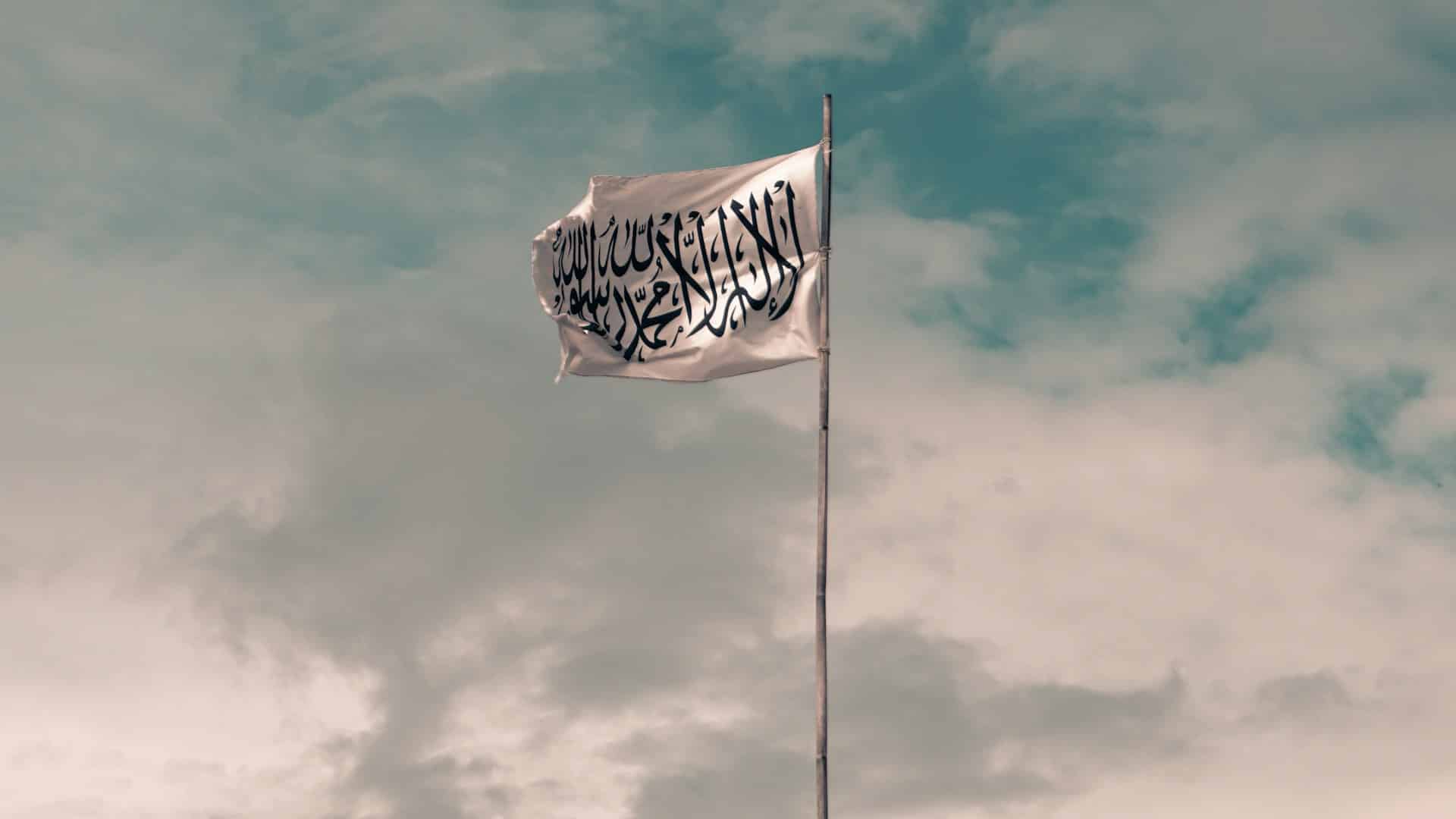
Love this so much. You’re wild